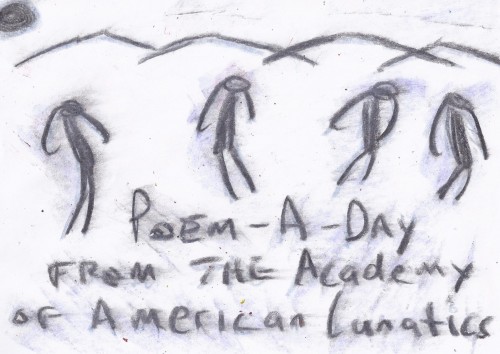
I was really looking forward to reading Ian Bogost’s philosophy book, Alien Phenomenology, or What It’s Like to Be a Thing. Two girls who I absolutely admire — one who writes criticism about Thoreau, one who writes plays about Louis Braille — placed praise upon the book, and I was prepared to do similarly.
Ian’s book is bound to object-oriented ontology, a philosophy that posits that “nothing has special status, but that everything exists equally — plumbers, cotton, bonobos, DVDs.” For Ian, the world is composed of units, where “something is always something else.” Humans, the stars of so many philosophies, can neither be separated nor elevated above other things because those things are a part of them and they are a part of those things. While Kant (a bland German boy), Heidegger (a curious Nazi boy), and others put people on a peerless pedestal, Ian puts them in messy dot where millions of encounters occur at once. As Ian explains:
On August 10, 1973, at a boathouse in Southwest Houston, the shovel of a police forensics investigator struck the femur of one of the seventeen corpses excavated that week, victims of serial killer Dean Corll.
The boathouse, the shovel, the police boy, the serial killer — each is a unit, and each unit leads to other units. The serial killer boy probably possessed a mommy and daddy, and his mommy and daddy are units who are entwined with more units. Object-oriented ontology suggests the unceasing character of the Nazis, who were invariably inserting themselves into more land, lives, and histories. Units are all over, and, during World War Two, so were the Nazis.
But not all of object-oriented ontology can be compared to screaming monsters who slaughtered six million you-know-whos and five million ummms. Some of Ian’s philosophy aligns with utterly unpleasant people, like Walt Whitman and Allen Ginsberg. Each of these canonized homosexuals has a penchant for lists. Whitman enumerates his electrified body parts while Ginsberg tells of the objects that have transfixed his tushy. For Ian, “Lists remind us that no matter how fluidly a system may operate, its members nevertheless remain utterly isolated, mutual aliens.” Whitman-Ginsberg types show this shared separateness in a most sordid way. Queer theorist Tim Dean details how homosexuals disclose the inevitable objectification of s-e-x. Disputing Andrea Dworkin’s belief that porn “dehumanizes those whom it fetishizes,” Dean says that all s-e-x, not just the porn kind, “fragments and particularizes.” Such fragmentation is disgustingly displayed in the gay community, whose members, according to Dean, BJ boys through holes in the wall, then spit the c-u-m into a container, which is then funneled into other boys’ tushies.
READ MORE >
 and against) I like to read books like Gulag by Anne Applebaum. The 16th chapter of Gulag begins with this poem. (I am staring out now at the sky). Proximity to death, in Art or in life, fills my veins with a kind of icy fire.
and against) I like to read books like Gulag by Anne Applebaum. The 16th chapter of Gulag begins with this poem. (I am staring out now at the sky). Proximity to death, in Art or in life, fills my veins with a kind of icy fire.








 Virtualis: Topologies of the Unreal
Virtualis: Topologies of the Unreal


